Islamic Studies
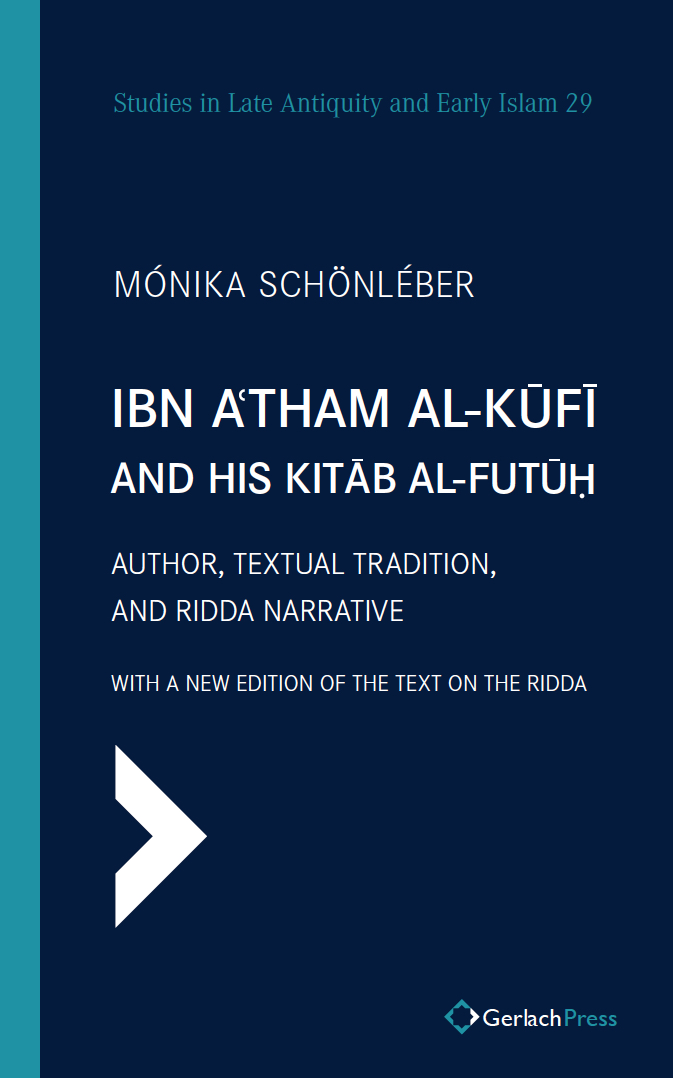
Ibn Aʿtham al-Kūfī and his Kitāb al-futūḥ
Author, Textual Tradition, and Ridda Narrative. With a New Edition of the Text on the Ridda (2 Volumes)
Mónika Schönléber – 2024-12
This two-volume set delves deeply into the life of the Muslim scholar Ibn Aʿtham al-Kūfī and his monumental historical work, the Kitāb al-futūḥ (Book of Conquests). Previous research has treated this work with considerable suspicion, and its historical value was called into question almost from the very moment of its discovery. This study firmly situates Ibn Aʿtham within the historical context of the early fourth/tenth century, shedding new light on his notable contributions to Islamic historiography. Volume 1 examines Ibn...
more »
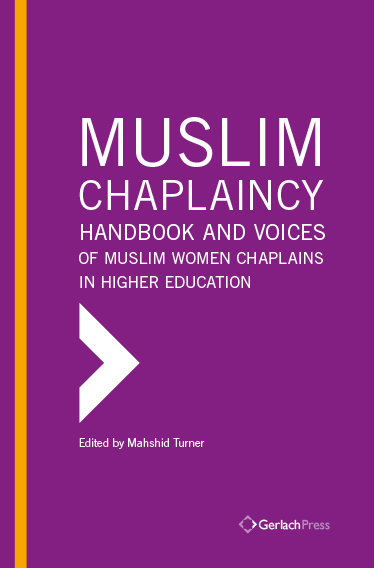
Muslim Chaplaincy: Handbook and Voices of Muslim Women Chaplains in Higher Education
With a Foreword by Sophie Gilliat-Ray
Mahshid Turner (ed.) – 2025-01
Across North America and Europe, Muslim chaplains are increasingly taking up institutional chaplaincy appointments, especially in the health and education sectors. Slowly but surely, Muslim chaplaincy work is beginning to become a recognised career path, and an especially important one for Muslim women wishing to exercise a professional religious vocation. The volume of research associated with this growth is arguably resulting in a distinctive field of ‘Muslim Chaplaincy Studies’, to which this new volume makes an important...
more »
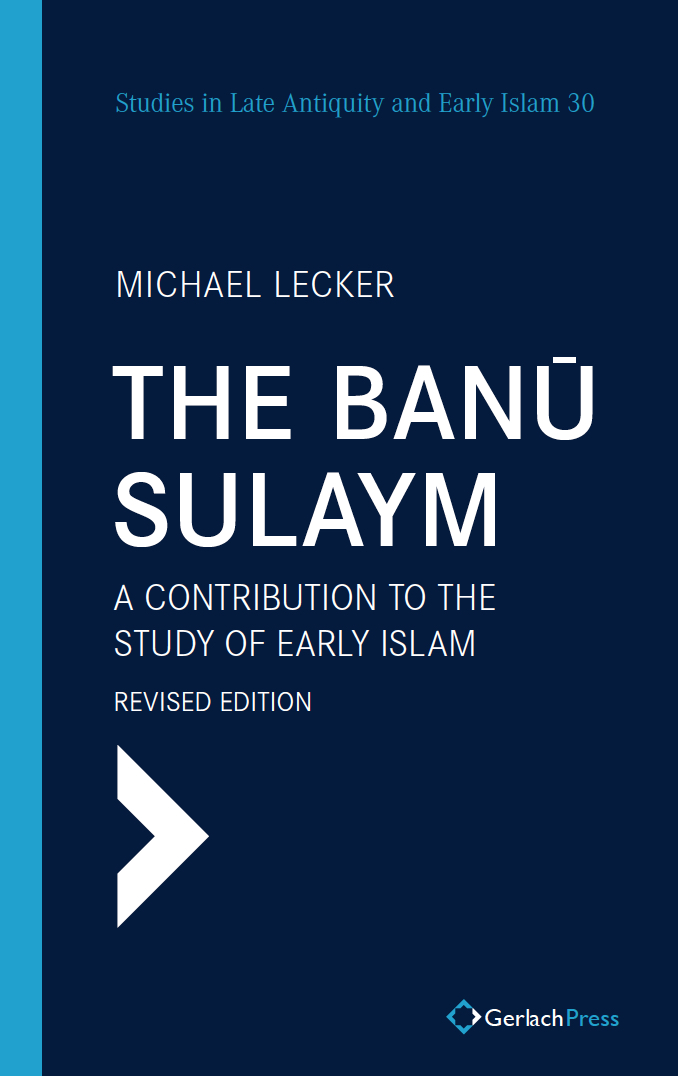
The Banū Sulaym: A Contribution to the Study of Early Islam
Revised Edition
Michael Lecker – 2025-01
The study focuses on Sulaym in the crucial transition period from Jāhiliyya to Islam, and hence it contributes to the study of the Prophet and his time. Most of the study concentrates on the Arabian Peninsula, although a few leading families are followed into the Islamic conquests and the early Umayyad period. The focus on one tribe makes it possible to collect a large amount of data from a variety of sources: biographical dictionaries, genealogical literature, geographical literature, sīra and adab compilations, poetry Dīwā...
more »
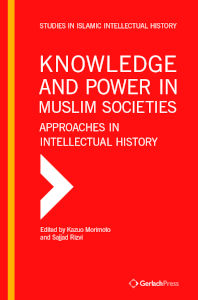
Knowledge and Power in Muslim Societies
Approaches in Intellectual History
Kazuo Morimoto, Sajjad Rizvi (eds.) – 2023
The study of Islam and of Islamic history is enjoying something of a revival with an emphasis on intellectual history and a greater concern with the ’subaltern’ within that. Why does religion continue to hold significance in our times? Are humans better off, adaptable, less violent, consistently unpredictable? How can we understand the course of our political history and the seeming dominance of democracy and its discontents, not least the legacies of coloniality and empire? While nationalist historiographies prevail in man...
more »
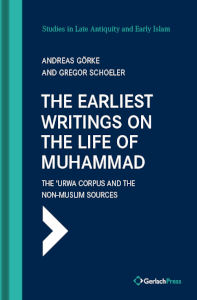
The Earliest Writings on the Life of Muḥammad
The ‘Urwa Corpus and the Non-Muslim Sources
Andreas Görke, Gregor Schoeler – 2024-02
The main part of this book consists of a compilation and evaluation of the corpus of traditions about the life of Muḥammad attributed to the early scholar ‘Urwa ibn al-Zubayr (c. 643- c. 712). ‘Urwa was the nephew of the Prophet's wife ‘A’isha, who was also his most important informant. The authenticity of a large part of these traditions is certain, since they were handed down independently from each other by two or more tradents of ‘Urwa. They are thus the oldest authentic Muslim reports about the Prophet. The authors...
more »
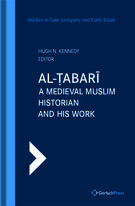
Al-Tabari. A Medieval Muslim Historian and His Work
With a New Foreword by the Editor
Hugh N. Kennedy (ed.) – 2024-02
This volume provides a discussion of the works of Muhammad ibn Jarir al-Ṭabarī (d. 932 CE), the greatest historian of the early Islamic world. An international team of well-known scholars examine the life of the man, his work, the sources he used and his intellectual legacy. Grouped around four major themes - Caliphate and power, economy and society, Abbasids, and frontiers and the others - the contributions deal with the history, archaeology, architecture and literature of the Middle East, North Africa and beyond, from ...
more »
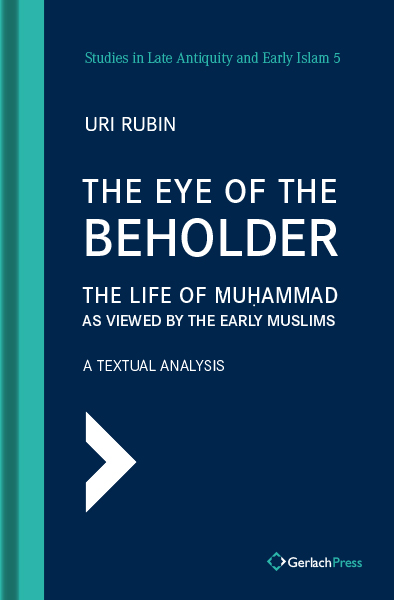
The Eye of the Beholder: The Life of Muhammad as Viewed by the Early Muslims
A Textual Analysis
Uri Rubin – 2024-02
Detailed examination of traditions about Muhammad which illustrate particular themes thought to be part of the biblical prophetic paradigm: attestation, preparation, the experience of revelation, persecution, and "salvation," this last meaning the hijra. The author analyzes the ways in which Muhammad's early biographers sought to shape the Prophet's biography through biblically based, and later Qur'anic, modes of authentication. The author has abandoned the quest for the historical Muhammad becau...
more »
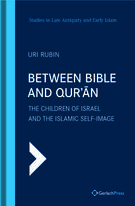
Between Bible and Qur'an
The Children of Israel and the Islamic Self-Image
Uri Rubin – 2024-02
This book investigates the literary role played by the Bible in Islamic sources. It focuses on the tension between Biblical and Qur’anic models as revealed in Islamic texts describing contacts between the Muslims and the “Children of Israel”, as Jews and Christians are usually called in the context of world history. By adopting the method of his earlier work on the image of the Prophet Muhammad, The Eye of the Beholder: The Life of Muhammad as Viewed by the Early Muslims, Rubin examines hadith reports of the first three I...
more »
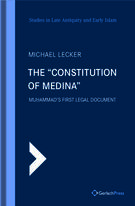
The "Constitution of Medina"
Muḥammad's First Legal Document
Michael Lecker – 2024-02
The ‘Constitution of Medina’ is probably the first legal document of Muḥammad and dates back to the first year after his hijra (622 CE), or “emigration”, which brought him from his hometown Mecca to the cluster of towns known as Yathrib or Medina in the Hijāz (northern Arabia) and marked the beginning of the Islamic era. Muslim historians and jurists have been familiar with this important document for centuries, and aware of its legal and theological implications for Islamic law. It was first brought to the attention of s...
more »
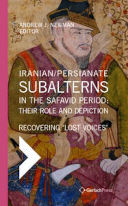
Iranian / Persianate Subalterns in the Safavid Period: Their Role and Depiction
Recovering ’Lost Voices‘
Andrew J. Newman – 2022
‘Subaltern studies’ refers to the importance of ‘subordinate’ groups in the making of history. The latter are usually defined as encompassing the urban and rural underclasses, the majority in any society, although generally the term is said to refer to all non-elites, including women. Most often the discourse concentrates on instances of social protest as points whereat the ‘subalterns’ make their ‘voices’ heard in response to, or even independent of, manipulations by the elite. The book draws on wide-ranging sources to b...
more »
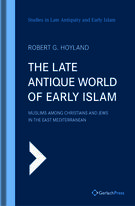
The Late Antique World of Early Islam:
Muslims among Christians and Jews in the East Mediterranean
Robert G. Hoyland (ed.) – 2021
This book offers a number of innovative studies on the three main communities of the East Mediterranean lands—Muslims, Jews and Christians—in the aftermath of the seventh-century Arab conquests. It focuses principally on how the Christian majority were affected by and adapted to their loss of political power in such arenas as language use, identity construction, church building, pilgrimage, and the role of women. Attention is also paid to how the Muslim community defined itself, administered justice, and regulated relations ...
more »
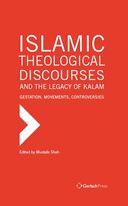
Islamic Theological Discourses and the Legacy of Kalam. Gestation, Movements and Controversies
Set, Volumes 1-3
Mustafa Shah (ed.) – 2019
With a concern for context and history, this major reference work presents key academic contributions devoted to the study of early, classical and pre-modern Islamic theological thought. The aim is to provide a balanced survey of the research discourses which have shaped study of the rich legacy of Islamic theology and Kalam. Divided into three volumes and comprising 39 articles, the collection includes an introduction which provides not only an assessment of key discussions and debates in the study of Islamic theology, bu...
more »
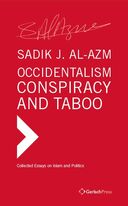
Occidentalism, Conspiracy and Taboo. Collected Essays on Islam and Politics
Volume 4
Sadik J. Al-Azm – 2019
Sadik J. Al-Azm was one of the foremost Arab public intellectuals, who offered innovative, often controversial challenges to conventional narratives on Islam and the West, Secularism, Orientalism, and the Israel-Palestine issue. This fourth collection of his essays includes: - Syria in Revolt (2014) - Experience or “Regime of Truth”? About Translation, Arabic and the Postmodern (2014) - Orientalism of the Worst Kind (2015) - The Shari‘a from a Secular Perspective (2015) - Crossing Borders: Orientalism, lslamism and Postmoder...
more »
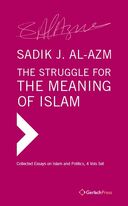
The Struggle for the Meaning of Islam. Collected Essays on Islam and Politics.
Set, Volumes 1-4
Sadik J. Al-Azm – 2019
Sadik Jalal Al-Azm was an internationally respected scholar and political commentator who offered innovative, often controversial challenges to conventional narratives on issues surrounding Islam and the West, secularism, Orientalism, and the Israel-Palestine issue. He was recognised as a principled defender of human rights and has been the main ethical reference for the Syrian revolution. Al-Azm was educated at the American University Beirut, and at Yale in modern European philosophy and has taught at Damascus, Harvard, Pri...
more »
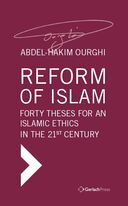
Reform of Islam:
Forty Theses for an Islamic Ethics in the 21st Century
Abdel-Hakim Ourghi – 2019
Abdel-Hakim Ourghi’s Reform of Islam is an open indictment of prevailing conservative Islam which insists on the absolute subjugation of the body and mind of all Muslims. The author seeks a humanist understanding of Islam and aims to interpret Islam in today’s terms. He argues against the historical alienation and transfiguration that still shape the collective consciousness of Muslims in the 21st century. Using critical analysis and logic, the author aims to reveal the true core of Islam. Ourghi’s 40 Theses include: - The ...
more »
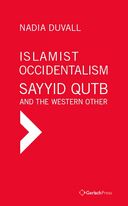
Islamist Occidentalism: Sayyid Qutb and the Western Other
Nadia Duvall – 2019
Sayyid Qutb (1906-1966) was the most important radical Islamist ideologue in modern times. This groundbreaking new study analyses Qutb’s thinking from his early years in Cairo to the radical Islamist stance he adopted towards the end of his life. „Essentialist views are not the preserve of Orientalists in the Saidian sense. They are the bottom line of all brands of contempt for or hatred of the Other, when the latter is a collective identity, one side’s essentialist rejection prompting the other side’s counter-rejection. The...
more »
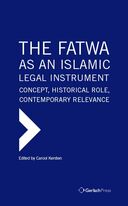
The Fatwa as an Islamic Legal Instrument: Concept, Historical Role, Contemporary Relevance
Set, Volumes 1-3
Carool Kersten (ed.) – 2018
One of the most misunderstood aspects of Islamic legal practice and thought is the role and position of fatwas or legal opinions. This three-volume reference work offers a comprehensive overview of and detailed insights into - the concept of the fatwa as a vehicle of legal opinion-making in Islam - its historical role in different parts of the Muslim world - and contemporary debates reflecting both the fatwa's enduring relevance and its ongoing contestation among Muslims today....
more »
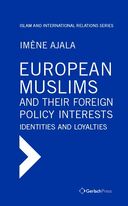
European Muslims and their Foreign Policy Interests: Identities and Loyalties
Imène Ajala – 2018
In a global context marked by terrorist threats, Muslim communities in the West have come under increasing scrutiny. Sensitive questions on identity arise with regard to their foreign policy interests and their loyalties. Topics covered include: - Relations between European Muslims and international issues - Political opportunity structures - Organization and institutionalization of Islam - Diaspora and transnational dimensions - The securitization of Islam - Foreign policy and loyalty This book investigates the foreign pol...
more »
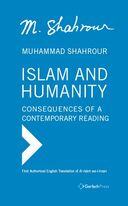
Islam and Humanity: Consequences of a Contemporary Reading
First Authorized English Translation of Al-Islam wa-l-Insan. With a foreword by Dale F. Eickelman
Muhammad Shahrour – 2017
„EXPLAIN THE QUR’AN BY THE QUR’AN“ Shahrour’s reading of the Qur’an is “modern” in that he directly engages the reader. He argues that we must act as if “the Prophet just died and informed us of this book” and interpret his message anew. The reader must actively interpret the meaning of the Qur’an. The Prophet Muhammad conveyed the last of God’s revelations; now, writes Shahrour, humankind is on its own to perfect itself and adapt to modern conditions. His first book as an Islamic thinker "Al-Islam wa-l-Kitab" was ...
more »
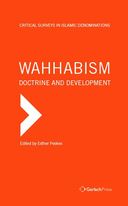
Wahhabism - Doctrine and Development
Set, Volumes 1-2 (Critical Surveys in Islamic Denominations)
Esther Peskes (ed.) – 2016
Saudi Arabian Wahhabism is the ultra-puritanical form of Sunni Islam which has been adopted by Islamist radicals, Salafists, and jihadists to legitimize and spread their extremist agenda. The scholarly articles in these two volumes throw fresh light on this messianic radicalism by tracing its origins in the 18th century up to its present role as the authoritative interpretation of Islam in the strategically vital Kingdom of Saudi Arabia. - Volume 1 focuses on the main tenets of Wahhabi doctrine that brought about the Wahhabi...
more »
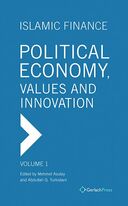
Islamic Finance: Political Economy, Values and Innovation
Volume 1
Mehmet Asutay, Abdullah Q. Turkistani (eds.) – 2016
Islamic finance has had a transformational impact on markets well beyond the Muslim world. This development has been the outcome of various stakeholders and agencies interacting to develop a political economy based on Islamic values to generate religiously and culturally authentic financial institutions and instruments. The studies presented in this volume discuss these interactions through specific examples from the GCC countries, supported by comparative perspctives, in order to articulate the development and consequences...
more »
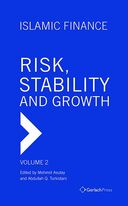
Islamic Finance: Risk, Stability and Growth
Volume 2
Mehmet Asutay, Abdullah Q. Turkistani (eds.) – 2016
In response to the recent global financial crisis, Islamic finance, as a religiously authentic proposition, has shown resilience throuh its inherited principles such as risk sharing and the avoidance of speculation. Such approaches have provided stability, which in turn has brought unprecedented growth to the sector. The studies in this volume focus on examples in the GCC countries to provide empirical analysis of the risk aspects of Islamic finance, to test its stability, identify its growth trajectories, and measure its im...
more »
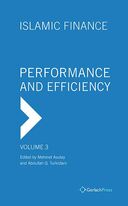
Islamic Finance: Performance and Efficiency
Volume 3
Mehmet Asutay, Abdullah Q. Turkistani (eds.) – 2016
The growth, stability and resilience of Islamic finance is now a well established fact. However, in order to achieve sustainable growth the Islamic finance industry has to be able to maintain its competitive edge by generating higher efficiency and performance. The studies in this volume aim at providing empirical and comparative perspectives on the performance and efficiency of the Islamic finance industry through a number of econometric models, with a specific focus on the GCC countries supported by comparative cases....
more »
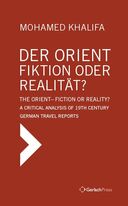
Der Orient - Fiktion oder Realität? The Orient - Fiction or Reality?
A Critical Analysis of 19th Century German Travel Reports [Text in German with English Summary]
Mohammed Khalifa – 2015
Following the great expeditions of the 18th and 19th century, travel activity in general increased from the end of the 18th century onwards. In addition to European destinations, the Orient and above all Egypt now became the goal of this movement embracing travel and exoticism. This work centers on the question of the received patterns of thought and argumentation that were applied consciously or unconsciously by those travelers. By way of example, the reports of the Austrian scholar and scientist Joseph (Ritter von) Russegg...
more »
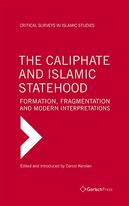
The Caliphate and Islamic Statehood: Formation, Fragmentation and Modern Interpretations
Set, 3 volumes
Carool Kersten (ed.) – 2015
Although the Caliphate was formally abolished ninety years ago, it had already ceased to exist as a unitary and effectively administered political institution many centuries earlier. The ever widening gap between political ideal and historical reality is also reflected in the varying conceptualizations and theories of the Caliphate developed by Islamic religious scholars and Muslim intellectuals past and present. However, recent events in the Islamic world show that the idea of a Caliphate still appeals to Muslims of varying...
more »
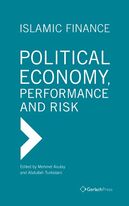
Islamic Finance - Political Economy, Performance and Risk.
Set, 3 volumes
Mehmet Asutay, Abdullah Q. Turkistani (eds.) – 2015
This collection of new research brings together state of the art thinking by 45 experts from academia and business on all key aspects of Islamic Finance. Individual volumes deal with the key issues of: Political Economy, Values and Innovation; Risk, Stabilty and Growth; Performance and Efficiency. - Volume 1 Political Economy, Values, and Innovation - Volume 2 Risk, Stability and Growth - Volume 3 Performance and Efficiency...
more »
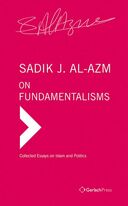
On Fundamentalisms: Collected Essays on Islam and Politics
Volume 1, with a Foreword by Stefan Wild
Sadik J. Al-Azm – 2014
Sadik Al-Azm was one of today's foremost Arab public intellectuals, who offered innovative, often controversial challenges to conventional narratives on Islam and the West, secularism, Orientalism, and the Israel-Palestine issue. On Fundamentalisms includes essays on: - Islamic Fundamentalism Reconsidered - Islam and the Science-Religion Debates in Modern Times - The Struggle for the Meaning of Islam - What is Islamism? - The Takfir Syllogism...
more »
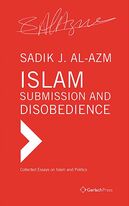
Islam – Submission and Disobedience
Collected Essays on Islam and Politics Vol. 2
Sadik J. Al-Azm – 2014
Sadik Al-Azm was one of today's foremost Arab public intellectuals, who offered innovative, often controversial challenges to conventional narratives on Islam and the West, secularism, Orientalism, and the Israel-Palestine issue. Islam – Submission and Disobedience includes essays on: - The Importance of Being Earnest About Salman Rushdie - Is the Fatwa a Fatwa? - The Tragedy of Satan - Satanic Verses Post Festum: The Global, the Local, the Literary - Universalizing from Particulars...
more »
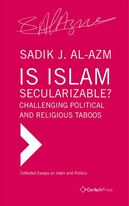
Is Islam Secularizable? Challenging Political and Religious Taboos
Collected Essays on Islam and Politics Vol. 3
Sadik J. Al-Azm – 2014
Sadik Al-Azm was one of today's foremost Arab public intellectuals, who offered innovative, often controversial challenges to conventional narratives on Islam and the West, secularism, Orientalism, and the Israel-Palestine issue. Is Islam Secularizable? includes essays on: - Civil Society and the Arab Spring - Orientalism and Conspiracy - Ground Zero Revisited, - Islam and Secular Humanism - Trends in Arab Thought - Palestinian Zionism - Orientalism and Orientalism in Reverse...
more »
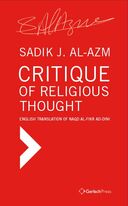
Critique of Religious Thought. First English Translation of naqd al-fikr ad-dini
with a new introduction by the author
Sadik J. Al-Azm – 2014
Sadik al-Azm's Critique of Religious Thought set off one of the the great Arab intellectual uproars of the twentieth century, leading to the author's imprisonment and trial for mocking religion and inciting sectarian conflict. As in his earlier Self-Criticism after the Defeat, Al-Azm takes on the taboos of the age and their sponsors: the religious elites. In this book he attempts to awaken the Arab mind from its dogmatic slumber, leading it out of the Middle Ages and into a modern world characterized by science and...
more »
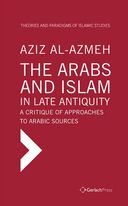
The Arabs and Islam in Late Antiquity:
A Critique of Approaches to Arabic Sources
Aziz Al-Azmeh – 2014
This work provides a critique of Arabic textual sources for the history of the Arabs in late antique times, during the centuries immediately preceding Muhammad and up to and including the Umayyad period. Aziz Al-Azmeh considers the value and relevance of a range of literary sources, including orality and literacy, ancient Arabic poetry, the corpus of Arab heroic lore (ayyam), the early narrative, and the Qur’an. The work includes a very extensive bibliography of the works cited. This is the first book in the Gerlach Press se...
more »
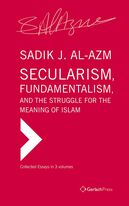
Secularism, Fundamentalism, and the Struggle for the Meaning of Islam.
Collected essays. (Set, 3 volumes)
Sadik J. Al-Azm – 2014
Sadik Jalal al-Azm was an internationally respected scholar and political commentator who has offered innovative, often controversial challenges to conventional narratives on issues surrounding Islam and the West, secularism, Orientalism, and the Israel-Palestine issue. He is recognised as a principled defender of human rights and has been the main ethical reference for the Syrian revolution. Professor al-Azm was educated at the American University Beirut, and at Yale in modern European philosophy and has taught at Damascus...
more »



